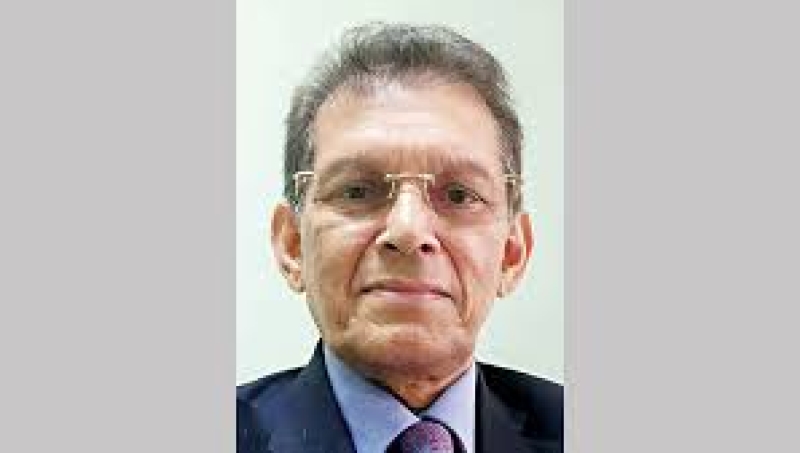- Who’re back in the race? EC clears 58 candidates for Feb polls |
- 8 workers burnt in N’gan Akij Cement factory boiler blast |
- Ex-Shibir activist shot dead in Fatikchhari |
- Class X student brutally murdered in capital’s Banasree |
- 'Bodycams' to be used at risky polling centres: IGP Baharul |
Dhaka Won't Rush on Rohingya Issue: Khalilur Rahman

Dr. Khalilur Rahman, the High Representative on the Rohingya Crisis and Matters of Priority to the Chief Adviser, stated on Friday that Bangladesh will take no hasty actions regarding the Rohingya issue without thoroughly assessing the evolving situation in Myanmar’s Rakhine State.
“We are closely monitoring the situation in Rakhine. We want to avoid making rushed decisions. Any steps we take will be the result of careful consideration,” Dr. Rahman remarked during a virtual discussion organized by Unity for Bangladesh, a youth-driven non-profit organization. The event, titled ‘Rohingya Crisis and Regional Security: Pertinent Considerations for Bangladesh,’ was held at Dhaka University’s Professor Muzaffar Ahmed Chowdhury Auditorium.
Dr. Rahman emphasized that the Rohingya issue is not just a humanitarian concern but also a critical matter of Bangladesh’s national and internal security. “Therefore, our future actions will depend on comprehensive assessments,” he added.
The situation in Rakhine remains tense, with the Arakan Army controlling 80-85% of the region, particularly the areas where the Rohingya live. Dr. Rahman noted that the entire Rohingya region has fallen under the control of this non-state actor.
He stressed that Bangladesh must remain patient until the situation in Myanmar reaches a clearer resolution. “Our future involvement will be determined by the eventual outcomes there,” he explained.
Prof. CR Abrar, a migration and refugee expert, advocated for substantial investment in the Rohingya community’s education, health, and livelihood. This investment, he argued, would equip the community for dignified repatriation to Myanmar with recognition of their identity.
Prof. Abrar urged Bangladesh to collaborate with international allies to provide these essential services, as it is a global responsibility. He pointed out that current efforts in education have been ineffective, adding, “If the Rohingya are empowered, both the Arakan Army and Myanmar’s military regime will be more likely to accept their return.”
He further suggested that Bangladesh should shift its current approach and focus on enabling the Rohingya to protect their rights and stand up for their future. “Our success in addressing the Rohingya issue will depend on the investments we make in this community,” he concluded.
Lt. Gen. (retd) Mahfuzur Rahman, former principal staff officer at the Armed Forces Division, underscored the need for a strategic policy to capitalize on Bangladesh’s geopolitical advantages. “It’s time to reassess our approach,” he said, stressing the importance of developing the Rohingya as human resources and fostering leadership within the community.
Lt. Gen. Rahman highlighted missed opportunities for a resolution to the Rohingya crisis, noting Bangladesh’s failure to act in 2017, 2022, and 2024. He pointed to a missed chance in 2022 when the Arakan Army sought Bangladesh’s support and offered to help repatriate the Rohingya, and again in early 2024 when the country failed to act after Myanmar’s Border Guard Police fled.
He also mentioned that the National Unity Government of Myanmar is now willing to offer citizenship to the Rohingya, suggesting that Bangladesh might miss yet another opportunity to resolve the crisis.
Maj. Gen. (retd) Nayeem Ashfak Chowdhury, security analyst, Dr. Saima Ahmed, international relations expert at Dhaka University, and writer Altaf Parvez also contributed to the discussion, which was chaired by Monzur Moin, spokesperson for Unity for Bangladesh.

